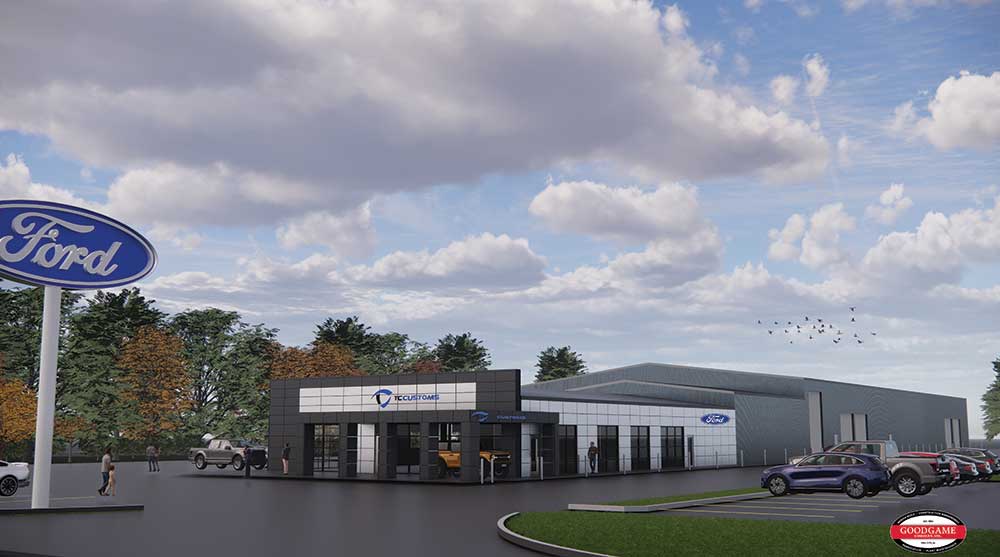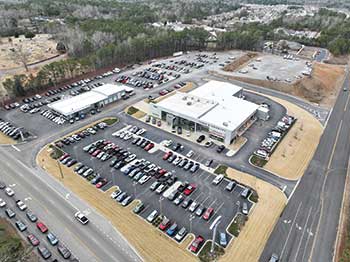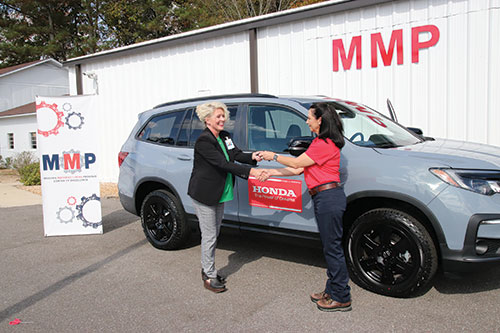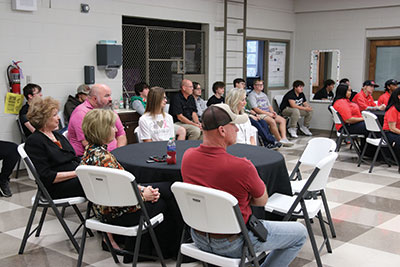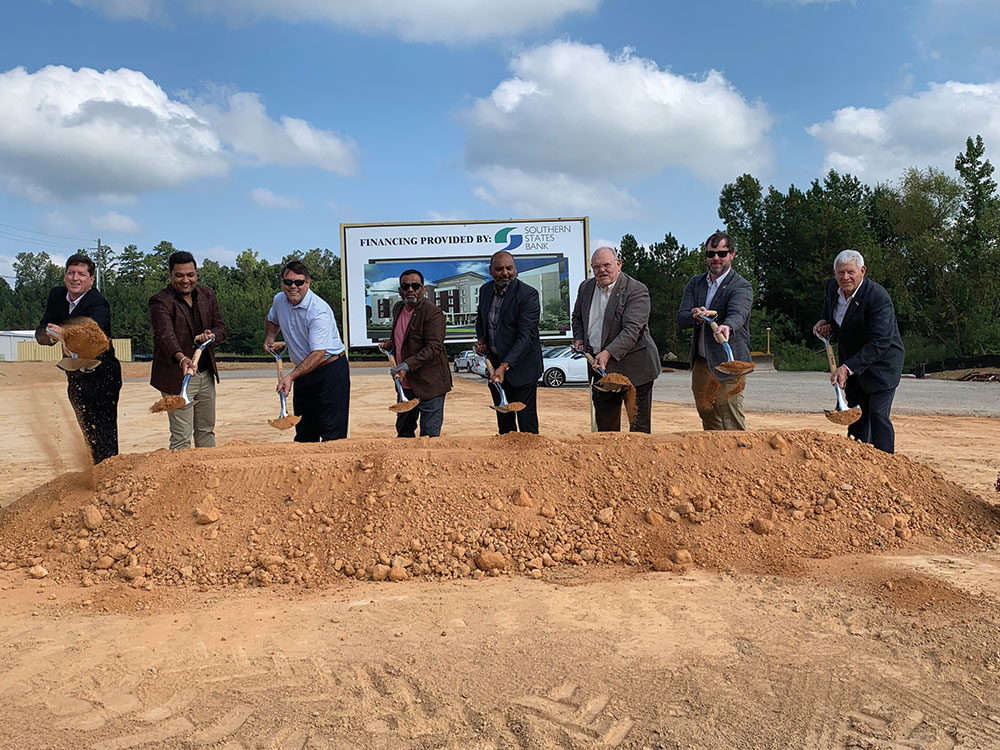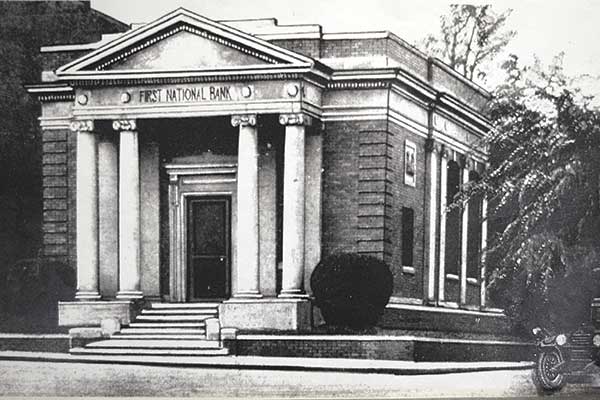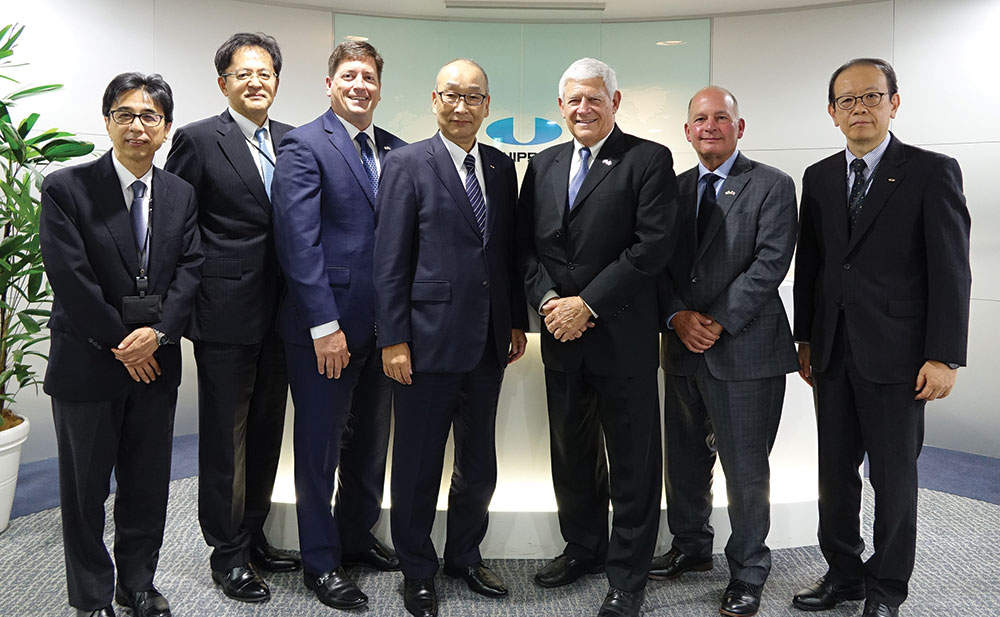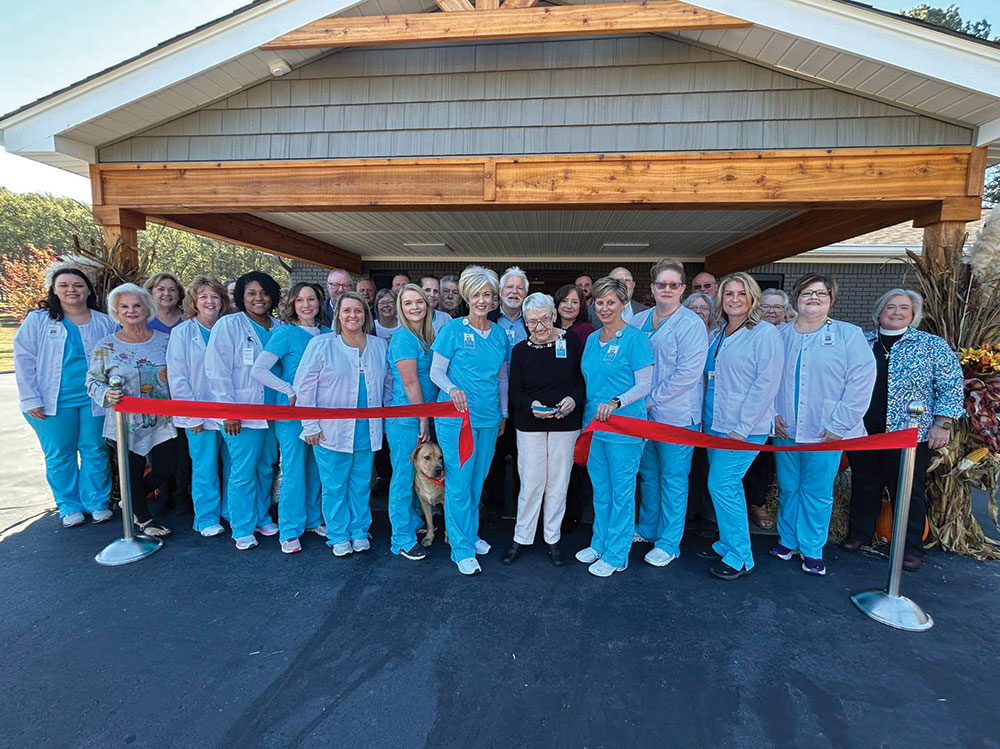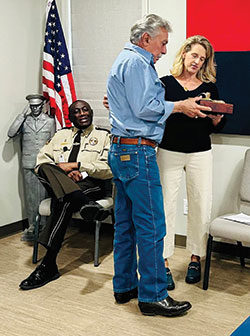Town and Country Ford’s massive Pell City expansion means jobs, improved service and cutting-edge technology
Story by Paul South
Photos by David Smith and submitted
“Businesses that grow by development and improvement do not die.”
— Henry Ford
Henry Ford, the innovator who brought us the assembly line process that produced automobiles in large numbers, knew a thing or two about development and improvement. Over the years, the company that bears his name brought America the Model A, the Mustang and the wildly popular pickup truck.
That spirit of innovation is now at work close to home at Pell City’s Town & Country Ford. A new customization facility, electric vehicle charging stations and an expanded service presence of 48 service bays mean a multimillion-dollar investment in the local economy, with more growth on the way.
In short, Town & Country – with locations in Pell City and Bessemer – has the pedal to the metal, with a new 36,000-square-foot building soon to be online.
Town & Country Dealer Principal and CEO Steve Watts calls the new facility, a customization operation and two EV charging stations, “the verification of our dream.”
He and his partner, Bill Sain, brought Pell City Ford Lincoln Mercury in December 2009. It was something of a risk. The American economy was in the tank. But Watts saw something in the dealership, then in a 9,150-square-foot building.
“It was my vision that it one day could really become something. It had a lot of potential being off the interstate (I-20),” Watts said. “You know, back in 2009, the economy was going to hell in a handbasket, and we were glad that we could step in and purchase the business.”
The dealership had 19 employees back then and rented its property. Today, Town & Country has a staff of 71 in its state-of-the art headquarters and now owns 13 acres on the blossoming Interstate 20/59 corridor.
“We’re planning to double our size and capacity and the number of people employed there in the coming weeks and months, once this new building comes online,” Watts said.
Customer demand fueled the new building, Watts said.
“Right now, we can’t get the work out,” Watts said. “Currently, we’ve got 22 service bays for our customers. When we get this thing completed by November, 2024, we’ll have 48 service bays … more than double the capacity of service.”
The customization facility will serve both electric, gasoline-powered and hybrid vehicles.
“This building is going to be a (Ford) Bronco building. It’s going to be an accessory and customization shop showroom, and it’s going to do everything commercial for emergency vehicles. It’s going to be for (internal combustion) vehicles and electric vehicles.
“I really believe Ford’s strategy for EV is appropriate because we’re not giving up on internal combustion vehicles. We’re going to continue to produce those, and for that, I’m eternally grateful.”
However, Watts is also sold on EVs. He drives a Lightning F-150, which he calls, ‘the best driving vehicle I’ve ever ridden in.”
The dealership is investing “seven figures” in dollars to construct two Level 3 EV charging stations, with more to come in order to accommodate the growing fleet of electric and hybrid cars and trucks on the nation’s highways.
These stations – with 24-hour, seven-day access – will be the first such facilities in Pell City and St. Clair County, Watts said.
The state and federal governments are providing funding to grow the number of charging stations around the country. In November 2023, for example, the state provided funding for the construction of three stations near Coosa Landing in Gadsden. Bipartisan infrastructure legislation passed by Congress provided $7.5 billion to construct more charging stations.
The new Pell City stations are expected to provide an additional economic boost to restaurants and other businesses eager to serve travelers and locals alike. The two stations were expected to go online this month (February), with plans to expand to as many as eight stations.
“If (motorists) stop to buy electricity, or stop to eat or spend the night, it drives more tax dollars. That’s a thing we’re really excited about,” Watts said. “It’s an opportunity, not only for my business and our associates, but also for the city and the county.”
And just as Ford’s founder was an innovation pioneer at a global level, Town & Country is innovating locally, in the spirit of Henry Ford.
“We have a choice to invest in EV or not,” Watts said. “I think the strategy is going to include those as well as ICE (internal combustion engines), and I think you’re going to see a lot more hybrid.”
But even with the growth of EVs, Watts says they’re not for everybody.
“The more infrastructure we get – because people don’t have ‘range anxiety,’ they have ‘charging anxiety’ – the better it is. But you’d be surprised at the number of local people who’ve bought electric vehicles and love them.”
At the end of the day, even with the land, the sparkling new facility and its amenities, that’s not what’s most important, Watts said. He reflected on those early days in 2009.
“The most important thing is not the land. It’s not the building. It’s the people,” Watts said. “I’m just so honored that we’ve been able to go from 19 people to 71 and being able to double that by November of 2024,” Watts says. “That just creates a lot of opportunity for the people. We’re desperately looking for people in all areas.”
The dealership has an Asset Training Program to grow the number of automotive repair technicians. Four local high school graduates are currently enrolled in the program at Lawson State Community College. A fully trained, experienced certified technician can earn up to $45 an hour.
“It’s really a great career path,” Watts said. “You have to work and you have to have the desire to get you there.”
He should know. The Alabama native began his automotive career as a high school student working on the assembly line at the Ford plant in Wayne, Mich., installing heater cords on Ford Granadas and moved on to auto finance and then to ownership. Two uncles owned dealerships in Talladega and Pensacola, Fla.
But Watts emphasized, it’s not about dollars or buildings or charging stations.
“My biggest and best investment is the people,” he said. “Every day, we’ve got 180 people in Bessemer and 71 in Pell City that clock out and go home. And I’m praying that they come back the next day, because without good people, we have nothing.”
Editor’s Note: For more information about Town & Country Ford, its Asset Training Program, inventory, service and employment opportunities, visit them online pellcityford.com and also visit tccustoms.com and on YouTube.











